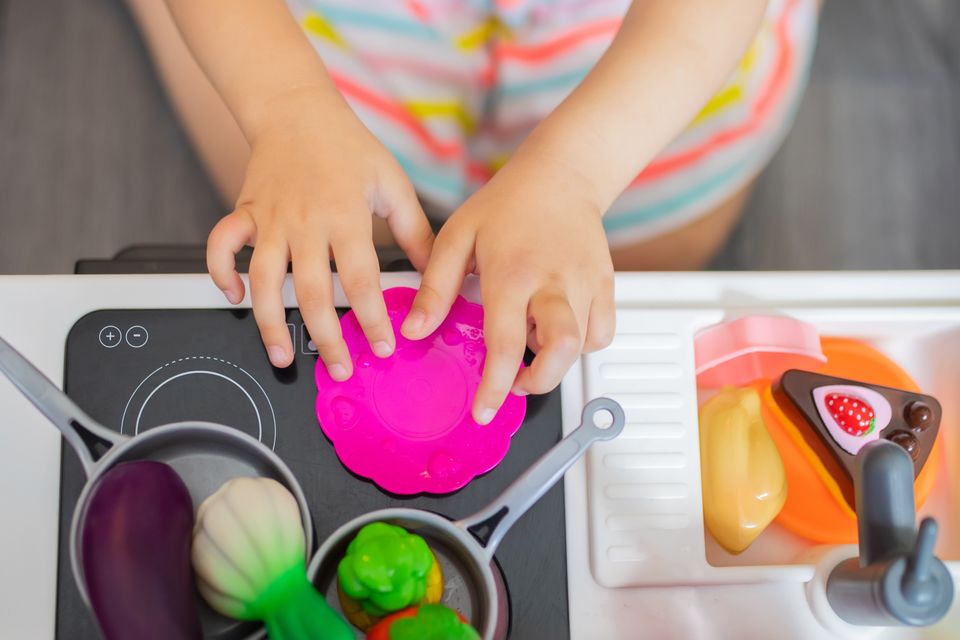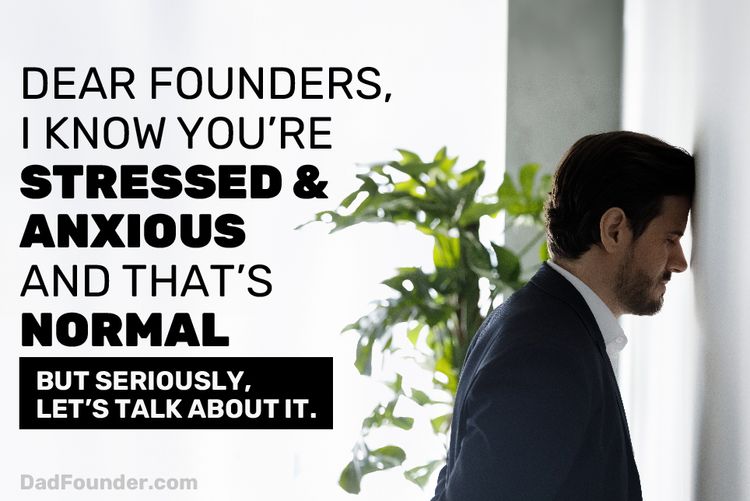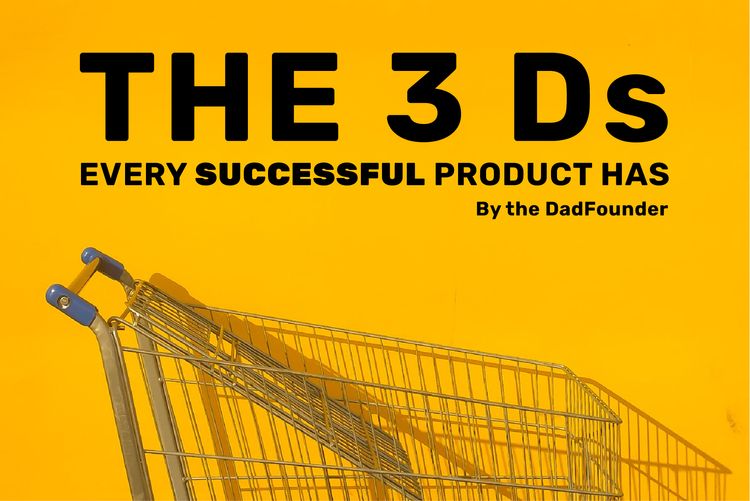5 Business Lessons My Toddler Taught Me

As the founder of a brand that creates board games for couples, I always look for new ways to be special and unique. In the toy and game industry, being creative and trying to stand out is everything.
So much so that sometimes I feel like we try too hard and forget about the basics. And who better to teach me that lesson than the most important person in my life - my toddler.
One day, I watched my daughter play with her toys, and something clicked. Over the next few weeks, I watched her interact with all of the items in her playroom and discovered a few things I was missing (or at least not paying enough attention to) in my business.
So, I'm here to share the five keys to business my toddler taught me based on how she plays with toys.
#1 How she plays with a toy is based on her experience (how consumers interact with your product)
While watching her play, I don't know how many times I said to myself, "how did she learn that?"
Her first instinct when playing with a new toy is based on how she's learned to play with other toys or what she's learned from watching my wife and me.
She was playing with her toy oven for the first time (thank you, Poppy, for the Christmas gift) and noticed it came with plastic cookies and a cooking sheet. From watching me in the kitchen, she knows that ovens are hot. So when we gave her a random Mickey Mouse glove keychain, her first reaction was to use it as an oven mitt when baking her cookies - without us showing her.
How this applies to your business
When a customer buys your product or visits your website for the first time, their natural first reaction is to compare your offering to an experience they've had in the past. Especially if you don't clearly outline your brand's key benefits, your customers will apply what they know already to fill in the blanks.
Now, this could be good or bad, but it is almost always unintentional.
When a potential new customer is experiencing your brand for the first time, what questions are they asking themselves that you aren't answering? How do you think they are filling in those blanks?
As business owners, we assume our customers should know everything we do about our product. But unless a toddler can understand it at first glance, we all have some work to do.
#2 If she sees me using a toy one way, she will copy it forever (a customer's first experience is everything)
I have a cushioned bed tray I use while working on the couch. It's got a woodgrain top with two foam pads underneath.
One day, after watching Moana, I placed the tray on the carpet and said to my daughter, "Board my boat!" - implying that the bed tray was Moana's raft.
To this day (at least four months later), she will still use that tray as a raft, and when I try and use it for its intended use, she is devastated.
For her, an item is defined by how she used it for the first time.
How this applies to your business
For my daughter, initial experience defines a toy. And just like her, your customer's first interaction with your brand will set that foundation for how they will see you forever.
If your customer has an amazing first experience, that memory will live with them throughout their journey. They will be more likely to stand up for your brand, support you as you grow, and share that experience with others.
But if the experience is poor or ill-defined, chances are you may lose them forever, or at the very least, changing their perception will be difficult.
How do customers experience your brand or product for the first time? How can you improve it so that experience will live with them forever?
#3 If mommy and daddy don't like it, she doesn't like it (social proof is real)
One day, we were at the park and found an old plastic toy fork on the ground. Of course, her first instinct was to run over and pick it up.
Quickly noticing the look in her eye, I said, "No, fork yucky."
Now, whenever she sees an old, abandoned toy on the ground, she says, "Daddy, yucky."
It doesn't matter how cool or fun the thing on the ground looks. She knows they are no good because I, daddy, disapproved.
How this applies to your business
The moral of that story is simple: social proof is powerful.
If a customer doesn't know how to use your product or doesn't quite know how to feel about it, they will turn to someone they trust.
Whether it be a YouTube review, a personal friend who has tried that product, or simply the testimonial page on your website, social proof is very powerful at both persuasion and dissuasion.
And the most powerful voices are those closest to your customer. A family member who has tried the product might mean more than an influencer they follow on Instagram, which may mean more than a blog post they found on Google, which may mean more than what you put on your site.
During a customer's discovery phase, while researching your brand, what is being said about your product? How can you improve that narrative or encourage more positive social proof?
And if your product is a dirty fork on the floor, you should probably start there.
#4 80% of the time playing is spent with 20% of her toys (ride your winners)
Ah, the old 80/20 rule.
No matter how many new toys she gets (and trust me, she has too many), she always reverts to playing with the same ones.
In fact, I've noticed that having a larger selection of toys to play with actually inhibits her experience. To the point that every few months, we do a 'toy purge' and swap out and rotate toys in her playroom.
By reducing her choices and focusing on the ones she enjoys the most, I feel her quality of play increases, and more memories are made.
How this applies to your business
Despite being a teachable moment for parents (toddlers don't need that many toys), it is also an important factor to think about when designing a new product or feature.
It's unsettling thinking about how much time, energy, and money we spend on toys that don't get played with, and yet, we always feel like she needs something new.
Similarly, in our businesses, we sometimes feel the urge to constantly create something new for our customers. But is it worth it?
Instead of diluting our resources into new products we don't know will work, why don't we double down on those most successful?
Or, at the very least, we should only put energy into a new product or offering if we feel it can be an important contributor to that 80%.
What factors of your business do you think you're putting too much energy into? What successful offerings need more attention? What can you purge to have more resources to put into your winners?
#5 Her favorite toys are typically the cheapest ones (joy and delight over everything)
Here is a list of the items my daughter has played with over the last week: a cardboard box, a flashlight, a stick, an empty water bottle, and my shoes.
To a toddler, value in a toy is defined by the joy and delight it gives her. She couldn't care less about how much it cost, what materials it was made from, or what store we bought it from. All she cares about is how it makes her feel and how much fun she has using it.
How this applies to your business
When evaluating a new plaything, my daughter is trying to solve a simple problem, "how can I have more fun?"
It's the first lesson we learn as entrepreneurs: find a problem and solve it.
And yet, sometimes, it's the easiest thing to forget. Above all else, find ways to solve your customers' problems and delight them in the process of doing so. It is the core of everything we do as business owners. We launched our companies to improve the lives of our customers, so don't forget it!
What is your customer's biggest problem they are looking to solve? Does your product solve it? During the customer life cycle, are you delighting your customers? In what ways can you better solve their problems or provide them with a more fulfilling experience?
Conclusion
Some of the most profound lessons I've learned in life have been in the past three years of watching my daughter.
I feel that sometimes my perspective is tainted with expectations, perceived values, and the rat race of growth. But watching her find happiness while playing with her toys has taught me the greatest business lesson of all - focus on experience and bring customers joy.
So, whether you are designing a new board game, launching a new food brand, or developing a new feature for your software app, I'd suggest hiring a toddler. They have a lot to teach us.





